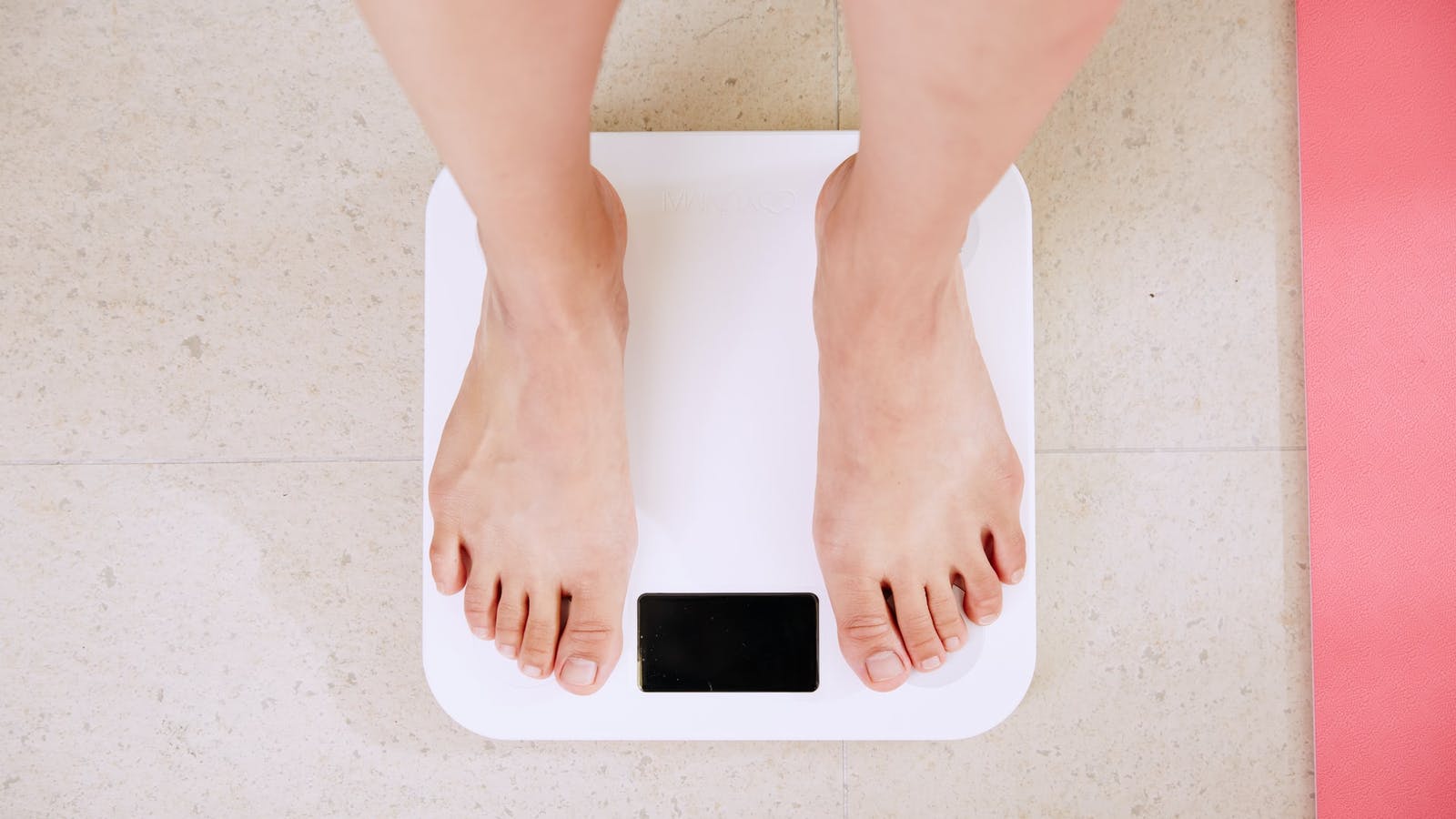All long-term studies show that 80% of people who followed a slimming diet regained weight after one year and 95% of cases after 3 years. But why does the body not want to lose weight sustainably? Why is losing weight so difficult? And how can we overcome this resistance to weight loss ? We answer all these questions in this article.
Physiological or metabolic problems that prevent us from losing weight sustainably.
- Gender inequality
Gender inequality is not a myth. Unfortunately, men and women are unequal at the plate. Men acquire muscle mass during their adolescence which allows them to burn calories more easily. Their basal metabolism, namely the amount of energy they expend each day to maintain the proper functioning of their organs, is higher than that of women because the muscles expend more. Conversely, women are programmed (only on a genetic level) to create life. She therefore tends to store more fat mass in order to be able to meet the needs of the child if she were to fertilize.
- The inevitable yoyo effect
During repeated diets , the body first loses muscle before losing fat. The body is not crazy! He will at all costs want to keep reserves, just in case a shortage or illness strikes. This muscle loss leads to a decrease in basal metabolism. Therefore, the individual will have to eat less in order to maintain their weight. This phenomenon is all the more true in the case of a diet without the intake of protein, an essential nutrient for muscle building.
In the event of a very restrictive diet (less than 800 calories per day), the body enters into a nutrient deficiency and a state of stress. We know today that stress is our number one enemy. Stress informs our body of danger. To protect itself, metabolic changes occur. In particular, the satiety hormone is no longer triggered. So, when we return to a normal diet, the body catches up, it “eats” and makes reserves. In short, the pounds are coming back...
The alternation of periods of restriction and compulsion disrupts the body, increases deficiencies, stress and fatigue, and losing weight becomes more and more difficult. Hello athletes who alternate between mass gain and dryness!
Hormonal imbalances.
It's all about balance. Weight and hormone secretions are linked. In the event of an imbalance, the body will tend to store more fat.
If you are overweight, it is likely that an insulin imbalance is the cause. Insulin is, in fact, the hormone that allows the body to store its own energy. If this is out of control then the body will not store its energy properly. To regulate your insulin production, it is important to avoid eating too many foods with a high glycemic index. It is also recommended to favor a breakfast low in sugar but rich in fat and protein.
Excess estrogen leads to weight gain and fat storage. The excess estrogen will, in fact, set in. To avoid this weight gain and eliminate estrogen, it is worth eating more cruciferous vegetables such as broccoli, cabbage and arugula which promote the detoxification of harmful estrogens. We can also relieve the liver responsible for this detoxification with Milk Thistle.
Leptin is your body's satiety hormone. In case of low leptin level, cravings during the day are recurrent and the body tends to store fat more easily. To facilitate its secretion, it is important to eat slowly and in a peaceful place (we cannot repeat this enough), take the time to chew the food and make sure you have sufficient, quality sleep.
Cortisol, the stress hormone, increases blood sugar levels, cravings and cravings for sugar... Over time, having too high a cortisol level slows down the basic metabolism and therefore makes it more difficult to lose durable weight . To compensate for this, it is essential to introduce daily well-being routines such as yoga, meditation, breathing exercises, and taking care of your sleep and yourself.
Psychological issues that prevent you from losing weight sustainably
- The stress
As explained previously, stress leads to an overproduction of cortisol. This hormone increases blood sugar levels to supply the organs with energy to cope with danger. Cortisol tells our fat cells to store even more fat. It blocks the secretion of insulin, so that sugar remains in the blood to supply the organs. Recurrent overproduction of cortisol also disrupts the secretion of serotonin, the well-being hormone, inducing temporary depression and addictive behaviors.
This is how the vicious circles of diets are triggered: restriction, stress, compensation, guilt. All of this is very detrimental to our mental health. Some people can even develop eating disorders and psychological disorders.
- The psycho-brakes
Change starts from within. The American coach Tony Robbins says it: “ Change is 80% psychology and 20% practice ”. And by psychology, he is not talking about motivation. Sometimes people have the willpower necessary to lose weight, but at the unconscious level something opposes it: " I don't want to lose weight because I like to eat ", " Healthy diets are boring ", " If I thin, I am disloyal to my family, they are also overweight . All of these beliefs oppose the weight loss process.
To lose weight sustainably, it is therefore important to understand our own inner saboteurs and to put an end to them. Why did we gain weight? Why can't we lose weight?
Sigmund Freud said: “We are the playthings of our unconscious.” The curves are like the knots of a tree, they conceal our intimate world, its hidden fragilities, its repressed fears, its poorly healed wounds. To lose weight sustainably, you'll have to put in the work. Our body gains the weight it needs at the moment. If we need to take up space it will gain weight, if we need to not be spotted, we will lose weight. Here are 4 psycho-brakes that prevent you from losing weight:
- The family circle : losing weight, when all the family silhouettes are covered, amounts to being different, worse, to valuing a body in perfect opposition to the genetics transmitted. At the risk of hurting those close to you, it is sometimes necessary to lose weight. As psychiatrist Gérard Apfeldorfer, author of Weight Loss, is in the Head , says: “Slimming also means breaking away from those who love us as we are and who are told, by losing weight, that they are losing weight. are wrong to love us like this, since we ourselves do not love ourselves.” Out of the guilt of betraying those we love, the extra pounds stick to us.
- The need for comfort : Food is comforting. Eating activates the secretion of endorphins with anxiolytic properties. Stress, disappointment, boredom? Nothing better than a raid in the fridge to neutralize this emotional overload that overwhelms us. Unfortunately, this only works for a while. “The problems that troubled us have not disappeared. And while we lament about our weight, which continues to climb, we forget why we started eating and we don't confront our problems. And, the more we are afraid of suffering, the more we become dependent on what prevents us from suffering” testifies the nutritionist and psychotherapist Jean-Philippe Zermati, author of Weight Loss Without Dieting .
- The relationship with the body and desire : excess weight can also constitute a protective shield that keeps any male gaze or desire in particular at bay. By opposing the image of the perfect body that conveys sex appeal, we protect ourselves and free ourselves from all fears linked to sexuality. By losing weight we regain our capacity for seduction, we accept to seduce and be seduced, to desire and be desirable. This exposure, both physical and psychological, can be dizzying for some, as Dr Waysfeld translates: “Defense mechanism forces, stuck between the desire to lose weight and suffering to confront their fear, some unconsciously choose to protect themselves. while keeping their weight off.”
- Being strict with yourself : Being thin means controlling your life and succeeding at all levels: romantic, professional, social life... But hyper-control of what we eat sooner or later leads to a loss of control: irrepressible, copious compulsions weight gain. In the midst of a distortion between the projection of one's perfect life and reality, one is fighting an unwinnable battle.
When we are well, when we sleep well, when everything is going well in our life, when we are aligned with our desires and our actions, the weight imbalance disappears and we naturally lose the necessary weight.
In conclusion, to lose weight sustainably, forget the terms “willpower, sport & diet” and switch to “serenity, balance and well-being” mode. Put an end to this endless war with your body and take care of it!
Weight loss diets, a real danger to health
In naturopathy, we know that it is easier to add good foods daily than to remove bad ones. A diet that truly nourishes us makes our cravings and compulsions disappear to regain our shape and our energy.
Conversely, weight loss diets are bad for our physical and psychological health. Often totally unbalanced, they deprive us of the nutrients necessary to be in great shape.
The body eliminates toxins less well, digestion is more difficult and hormonal production is completely unbalanced. So many factors that prevent us from losing weight sustainably.
The most dangerous? Those which remove the fats essential for the proper functioning of the brain! They can cause depression, poor memory and fatigue.
High-protein diets are no better. They lead to excessive consumption of meat, fish, eggs and dairy products, which acidifies the body. In short, your body turns into a real bottle of Coke... To rebalance itself, it will draw on its reserves of alkaline minerals (hair, teeth and bones). Result ? Hair loss, cavities, fragile nails, skin problems, fatigue but also osteoarthritis, osteoporosis, rheumatism, gout, heartburn...
Stop the received slimming ideas! The 11 mistakes we make that prevent us from losing weight
- Getting discouraged with each weigh-in
It is normal for your weight to fluctuate throughout the day and during your menstrual cycle. To evaluate your weight loss , nothing better than measuring your weight on the same scale, once in your cycle, on the same day, at the same time and with the same clothes. And avoid Monday! On weekends, you tend to eat more than during the week. Moreover, researchers at the Washington University School of Medicine in Saint Louis discovered that dieters lost weight during the week but never during the weekend.
You should not be discouraged if the number does not change or increases. Weight can also vary depending on the degree of hydration, the outside temperature, the type of food ingested and physical activity... What is especially important is to see how you feel in your body . You may, in fact, have become slimmer by gaining muscle and losing water retention.
Do not focus on the number displayed on the scale, it is not representative of your value or the success of your efforts.
- To skip a meal
In reality, it all depends on why you're skipping the meal. If you are not hungry, you are absolutely right not to eat at that time. Listen to your hunger and eat when you are hungry. On the other hand, if you are hungry and you skip the meal then you can be sure that you will trigger a binge later. By exacerbating your hunger, you will eat much more than if you had eaten at the right time.
For anyone who skips breakfast because you simply don't have time in the morning, you're also making a big mistake. After 8 hours of sleep your body needs energy. By depriving it of food, it will draw the energy it needs from your muscles and you will thus reduce your basic metabolism, that is to say you will considerably reduce your body's ability to burn calories.
- Taking too many diet pills
There is no miracle pill. In the case of an impeccable diet, these pills can, in fact, help you lose weight but in no case will they make you lose weight alone.
The appetite suppressant capsules in particular make you temporarily forget about hunger. But your body is not fooled! Your hunger will return some time later and with more force.
Not to mention, these pills are not good for your health. Appetite suppressants derived from amphetamines trigger serious psychiatric disorders, pulmonary hypertension and sometimes death.
- Not getting enough sleep
We tend to forget about sleep. We have the impression that when we sleep nothing happens and we don't burn any calories. FAKE ! When we sleep, our body repairs itself and regains balance. A lack of sleep can actually hinder weight loss . It causes an imbalance between ghrelin and leptin, two appetite-regulating hormones. Result: we eat more, we gain weight.
- Not drinking enough
We often tend to confuse hunger with thirst. Before eating, start by drinking to see if the hunger does not pass.
Furthermore, even if drinking will not make us burn calories, water helps us eliminate toxins from the body, fight against water retention and its various inconveniences including swelling of the face, hands, legs and stomach.
- Ban bread and starchy foods
Bread and starchy foods do not make you gain weight. On the contrary, they often force us to chew more and thus awaken our satiety hormone. Furthermore, they provide good energy to our body in the long term. Bread and starchy foods only make you gain weight when consumed in excess. It's all about balance. Everything is poison, nothing is poison. Only the dose that makes the poison.
- Banish fat
We tend to shy away from fat. When dieting, some people no longer use fat for cooking or eating vegetables. The French Food Safety Agency says: eating less fat does not make you lose weight in the long term. Its latest report on the issue, dated March 1, 2020, clearly explains that: “It is the quantity of total energy and not the lipid content of diets which is very generally correlated with the risk of metabolic pathologies, diabetes or 'obesity".
Furthermore, from a health point of view, fat is very important. It allows hormonal balance and the assimilation of fat-soluble nutrients such as carotenoids, vitamin E, polyphenols.
Curcumin for example, an active compound in turmeric recognized as an anti-cancer, is perhaps up to 5 times better absorbed in the presence of fats. Likewise, the absorption of lutein, an antioxidant very present in tomatoes which protects us from aging, increases by 200% during a normal meal compared to a low-fat meal.
Finally, researchers showed that when low-fat diets were compared to low-carbohydrate diets (with less starch), weight loss was similar. On the other hand, people with a diet that preserves the amount of fat on their plate are in better long-term health from a cardiovascular point of view.
- Ban sugar
Sugar is our primary fuel. We need it to live, to move and to maintain our motivation.
Generally speaking, any deprivation of a category or a certain food leads to a cognitive restriction, namely an over-control which can quickly become an eating disorder and always leads to cravings, nibbling, compulsions, uneasiness, guilt. It is important to listen to your wants and needs.
- Only eat mixed salads
Many people order a Caesar-type salad at restaurants in favor of steak and fries. However, the two dishes have approximately the same number of calories on the counter. Furthermore, by only eating salads we tend not to be satisfied enough and therefore to supplement with bread or a dessert which is not the case with a dish composed of vegetables, proteins and starchy foods.
- Eat light products
Low-fat crème fraîche, 0% yogurt, light margarine, sweetener, zero coke. These foods low in calories and poor in taste are less satisfying. So we tend to eat two instead of one. In terms of calories it therefore amounts to the same. And even if we don't eat them two by two, we risk eating something else.
Furthermore, to regain the sweet taste, synthetic sweeteners are often added. These molecules have a strong sweetening power but are molecules empty of nutrients. There are a multitude of them, the best known are: aspartame, sucralose, cyclamate, saccharin, acesulfame-potassium, neotame, alitame, etc.
Although they do not provide calories, they are not harmless to our health! Once in the mouth, our brain analyzes the sweet taste and thinks it will have to ingest glucose. It therefore launches insulin production to bring glucose into our cells. But not seeing the glucose arriving, he reported hypoglycemia. You will then feel tired but above all you will want to eat something sweet, quickly.
- Exhausting yourself at sport
The more you exercise, the more weight you will gain on the scale because you will build muscles that weigh more than fat.
Furthermore, we therefore tend to only practice cardiovascular physical activities such as jogging because they are known to help us lose weight more quickly. However, too much cardio leads to a loss of muscle mass in the long term, which slows down your metabolism. To maintain your healthy weight you will therefore need to eat less. In the long term, you will have to eat like a bird, creating a constant struggle with yourself and creating a feeling of frustration. The risk of the yo-yo effect is then amplified.
- Feel guilty at the slightest deviation
There is no possible deviation as there is no rule. Every body is unique and works in its own way.
The word “gap” is already toxic! He maintains the idea that there are forbidden foods. This idea of difference advocates restriction and deprivation.
Remember that your brain doesn't know negation, so the more you tell it not to eat something, the more it will want to give in.
Furthermore, if you stop eating a food in the long term, your body will no longer be able to recognize and digest it. This weakens your digestive and immune system.
Treat yourself to pleasure meals without any qualms. During my naturopathy consultations, I always end the dietary recommendations with 3 pleasure meals during the week. No rules! Whether in a restaurant, at a party or at home, it doesn't matter, you eat whatever you want. This is also the key to balance.
And I even want to go further: eating every day should be a celebration, a pleasure and a comfort! Don't try to eat healthy at all costs, try to eat better first. Stop when the taste pleasure ends.
To lose weight sustainably, stabilization is the key
To lose weight sustainably, it is important to first return to a healthy diet and then to stabilize.
Eat healthy yes! But without forgetting the fun! If you want to lose weight and stay slim, maintain your health and well-being, it is imperative to have a new food hygiene:
- Give your body all the nutrients it needs with 3 balanced meals per day and an afternoon snack if necessary. Without deficiency, no compulsions or cravings!
- Listen to your body and its 3 food sensations: HUNGER, SATISSION, SATIETY. If we listen to them while eating hungry, taking our time, chewing well, we gradually feel satiation setting in, then finally a state of non-hunger arises, satiety which should make us stop eating. They are the guarantors of our weight balance.
- It is by respecting this that the relationship with food will remain healthy and that weight will be maintained over the long term. So don't force yourself to eat breakfast if you're not hungry, or to finish your plate like Mom taught you. No, listen to your body: you are hungry, you eat, you are not hungry, you do not eat, even if it is time, even if all the colleagues go to the cafeteria and leave you alone, listen -YOU. Gradually, in any case, your feelings will settle into a rhythm of 3 meals per day at the agreed social times.
- In general, a dietary framework remains important to combat weight gain. Adopt a living and ancestral diet as much as possible. Raw vegetables and concentrated enzyme foods are sorely lacking in our diet, which is all refined, cooked, hot, and denatured by chemistry.
- So start reintroducing CRU at each meal and at the start of meals in order to provide digestive enzymes, fibers, minerals, vitamins of excellent quality which will nourish your body as healthily as possible, without tiring it without overloading it and even by relaunching its metabolic activity.
- All food groups should be present at every meal with moderation to just one daily dairy product.
- Limit the glycemic indices that lead to cravings
- Respect the right food combinations to have good digestion
- Avoid foods you are intolerant to that can cause you to be overweight
- Eliminate prepared meals full of additives
- Focus on lean proteins: fatty and white fish, oysters, white meats without the skin, sour red meats: ground steak < &5% fat, roast beef, beef steak, duck breasts, pork tenderloin.
- Enhance your dishes with aromatic herbs: rosemary, Provence herbs, ginger, turmeric and cloves in the cooking water instead of salt and stock cubes. Limit salt, a source of water retention present in cold meats, bread, cheese, white ham, prepared caterer meals and industrial products.
- Avoid milk, cheese and dairy products, which are inflammatory, limit yourself to 1 dairy product per day from sheep or goat, preferably organic and soy.
- Season with olive, flax, walnut, camelina oils, eat walnuts and lamb's lettuce for their anti-inflammatory omega 3 content.
- Drink enough water. Sometimes we eat when we are dehydrated, this is even more true for overheated office workers. The water must be lightly mineralized. Bye Bye to the slimming partner. Hello waters that are suitable for baby bottles like Volvic, Mont Rocous, Evian. They do not tire the kidneys and do not remove calcium from your bones because they are almost sulfate-free, which is not the case with other waters.
- Drink Sencha green tea, blue-green Oolong tea, black pu-erh tea for their detoxifying and so-called “fat-burning” action. 75 cl per day maximum so as not to tire the kidneys.
- Drink useful and effective! It is recommended to drink small sips throughout the day, outside of meals, so as not to bind water to salt, and before 7 p.m. Eh yes ! exit the one liter teapot in front of the TV in cocooning mode, it's the easiest way to have bags under the eyes and cellulite!
- However, you must always listen to your body and therefore your thirst. If it's very hot and you've been exercising, of course you need to hydrate. If this is not the case, it is either because we did not drink enough during the day, or because we ate too salty. Oh yes ! Salt calls for water and stores water. You will have understood, we avoid the salt shaker in favor of aromatics.
- ABOVE ALL, treat yourself, eating healthily is a real delight!
And move! Walk for more than 30 minutes in a row, the first half hour of activity only burns sugar, it is after 30 minutes that we draw energy from fat! Make even the slightest physical activity a pleasure, do housework to music, go up the stairs by completely extending your leg (the knee must not remain bowed before going up the next step, it pulls on the glutes) carry your shopping with your arms slightly bent, this will strengthen your biceps and triceps, contract your glutes while sitting in the car or at the office, walk with your head held straight, shoulders back and with a toned step with your abs contracted, you have already lost a size belly just by holding yourself like this….Be inventive and creative to build muscle at any time.
Go to the hammam and sauna, get a vigorous massage with a horsehair glove.
Sleep well to promote a good metabolism. It's proven, short sleepers are heavier than long sleepers, so we go to bed early, the hours before midnight count double, from a metabolism point of view. Better a range of 22 hours – 6 hours than 1 hour – 9 hours.
In the event of persistent overweight, do not hesitate to contact a dietitian, a nutritionist or a naturopath to support you as best as possible.







